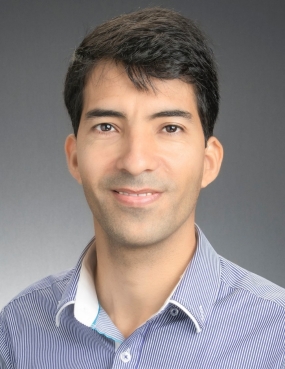National Science Foundation Awards CAREER Grant to Villanova Engineering Professor

VILLANOVA, Pa. (September 12, 2023) – The National Science Foundation (NSF) has named Mojtaba Vaezi, PhD, associate professor of Electrical and Computer Engineering from Villanova University’s College of Engineering, as a recipient of the Early Career Development (CAREER) Award. His project, “Harnessing Interference with Deep Learning: Algorithms and Large-Scale Experiments,” has received a five-year, $600,000 grant, which will allow Dr. Vaezi to advance research in managing interference in cellular networks.
The CAREER Award is the most prestigious grant supporting career development activities for teacher-scholars who most effectively integrate research and education within the context of their organization's mission.
Dr. Vaezi is the 10th Villanova faculty member to receive an NSF CAREER Award since 2017 and the fifth from the College of Engineering. He is the first recipient from the Department of Electrical and Computer Engineering.
“Interference is a ubiquitous concern in wireless communication,” Dr. Vaezi said. “As the number of users increases, the number of transmission sites increases, causing more interference. The rising deployment of drones and aerial transmitters intensifies interference and its challenges. The goal of this CAREER Award is to address this issue and increase data rates in wireless networks around the globe.”
This project will involve the development of a theoretical foundation and the implementation of large-scale experimental settings for interference management in 5G networks. The research will be conducted at Villanova and at larger test sites around the country. Dr. Vaezi will train and educate two PhD students and eight undergraduates through this award.
As part of this grant, Dr. Vaezi is also designing a summer program for underrepresented high school students in Philadelphia aimed at providing education about wireless communications. The program will run through the Villanova Engineering, Science and Technology Enrichment and Development (VESTED) Academy. It will introduce science, technology, engineering and mathematics (STEM) fields to students from all backgrounds to help them discover their passion for engineering and to expand our regional and national pools of engineers.
“We will incorporate the use of drones to create a hands-on experience and make this field more appealing to the next generation of learners,” Dr. Vaezi said.
An expert in machine learning, communications and signal processing, Dr. Vaezi’s work has included projects on large-scale wireless systems in collaboration with leading companies to design and optimize real-world complex systems for 5G and Beyond 5G networks. He has secured two additional NSF grants in 2023 related to advancing wireless communications technologies. Dr. Vaezi, the director of the Wireless Networking Laboratory (WIN LAB) at Villanova, has taught undergraduate courses in signal processing and communication systems, and graduate courses in statistical signal processes and 5G wireless systems.
About Villanova University: Since 1842, Villanova University’s Augustinian Catholic intellectual tradition has been the cornerstone of an academic community in which students learn to think critically, act compassionately and succeed while serving others. There are more than 10,000 undergraduate, graduate and law students in the University's six colleges—the College of Liberal Arts and Sciences, the Villanova School of Business, the College of Engineering, the M. Louise Fitzpatrick College of Nursing, the College of Professional Studies and the Villanova University Charles Widger School of Law. Ranked among the nation’s top universities, Villanova supports its students’ intellectual growth and prepares them to become ethical leaders who create positive change everywhere life takes them. For more, visit www.villanova.edu.
